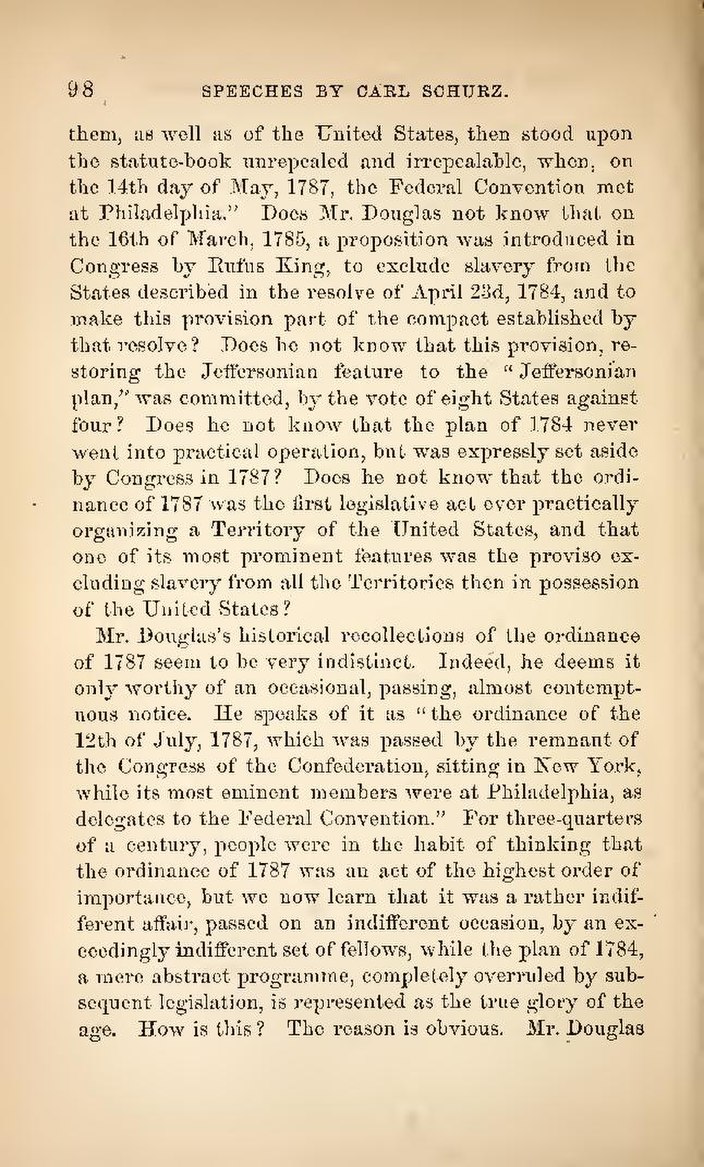them, as well as of the United States, then stood upon the statute-book unrepealed and irrepealable, when, on the 14th day of May, 1787, the Federal Convention met at Philadelphia.” Does Mr. Douglas not know that on the 16th of March, 1785, a proposition was introduced in Congress by Rufus King, to exclude slavery from the States described in the resolve of April 23d, 1784, and to make this provision part of the compact established by that resolve? Does he not know that this provision, restoring the Jeffersonian feature to the “Jeffersonian plan,” was committed, by the vote of eight States against four? Does he not know that the plan of 1784 never went into practical operation, but was expressly set aside by Congress in 1787? Does he not know that the ordinance of 1787 was the first legislative act ever practically organizing a Territory of the United States, and that one of its most prominent features was the proviso excluding slavery from all the Territories then in possession of the United States?
Mr. Douglas's historical recollections of the ordinance of 1787 seem to be very indistinct. Indeed, he deems it only worthy of an occasional, passing, almost contemptuous notice. He speaks of it as “the ordinance of the 12th of July, 1787, which was passed by the remnant of the Congress of the Confederation, sitting in New York, while its most eminent members were at Philadelphia, as delegates to the Federal Convention.” For three-quarters of a century people were in the habit of thinking that the ordinance of 1787 was an act of the highest order of importance, but we now learn that it was a rather indifferent affair, passed on an indifferent occasion by an exceedingly indifferent set of fellows, while the plan of 1784, a mere abstract program completely overruled by subsequent legislation, is represented as the true glory of the age. How is this? The reason is obvious. Mr. Douglas
